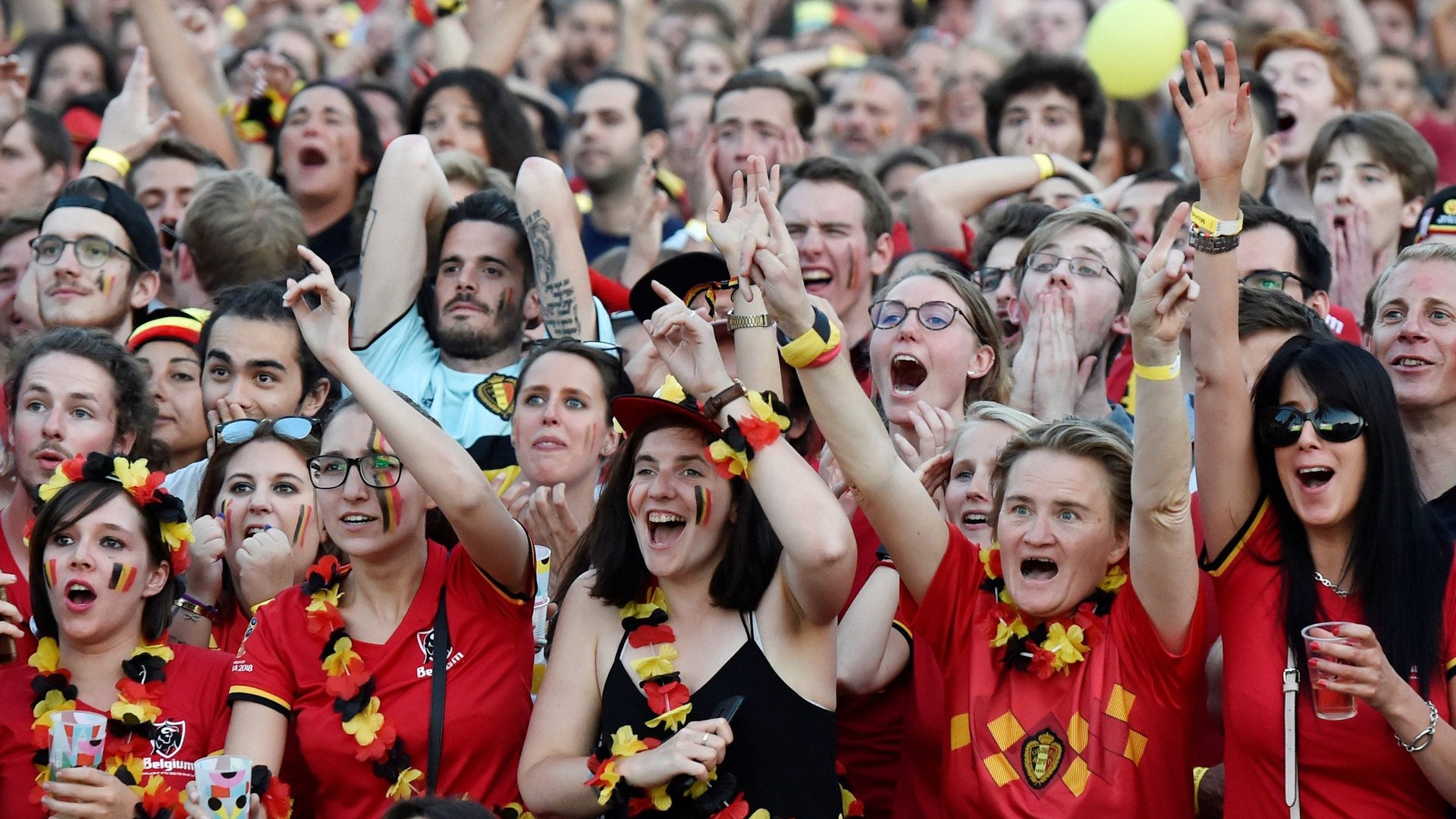What Belgium’s World Cup team says about the spread of English across Europe
Linguistically, Belgium is complicated. The country is wedged between France, The Netherlands, and Germany. And so Belgians speak versions of French, Dutch, and German, depending on where they live in the country.


Linguistically, Belgium is complicated. The country is wedged between France, The Netherlands, and Germany. And so Belgians speak versions of French, Dutch, and German, depending on where they live in the country.
The result is that the lingua franca of Belgium’s national soccer team—one of this World Cup’s strongest contenders—is, unexpectedly, English. Despite the fact that English is not among the country’s three official languages, and is not spoken natively, the players use it to coordinate on the field, talk to their coach, and blame each other for bad game-time decisions.
In part, this is the consequence of the gradual establishment of English as the default language of continental Europe. English is convenient as a go-to option because so many people speak it as a second language. And for Belgian players, English is particularly expedient given that their coach, Roberto Martinez, is Spanish and doesn’t speak any of Belgium’s three official languages.
But the case of the Belgian team highlights another aspect of English that has allowed it to thrive in Europe: Its political neutrality.
French might seem like a better option as the team’s common language. Most Belgian players speak French well enough; it’s widely spoken in Belgium, and would be less likely than English to be understood by the team’s World Cup opponents. Moreover, some of the Belgian team’s players have rather poor English skills. One British commentator called Marouane Fellaini, a Belgian midfielder, the worst English speaker he’d ever come across.
But defaulting to French would be controversial. That’s because speakers of Flemish, the Dutch variety spoken in northern Belgium, often identify more strongly with that language and its culture than they do with the Belgian nation. That has been the fuel for the long-running Flemish separatist movement. Too much emphasis on French, or even German, always poses the risk of reigniting national divides.
Counterintuitively, then, the power of English comes from the very fact that it is not native to the country. It is indifferent to national identity and linguistic divides. That helps explain why EU bureaucrats complain about the excessive influence of English post-Brexit, but continue to use it anyway.